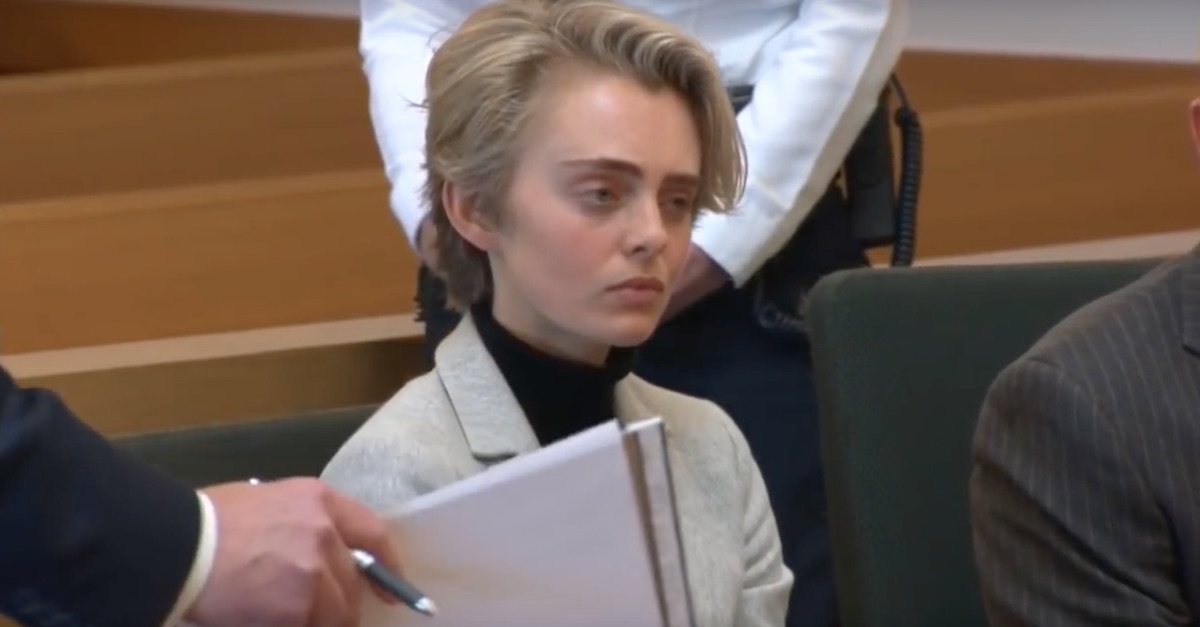
In Feb. 2019, attorneys for Michelle Carter said that they were going to ask the Supreme Court of the United States to overturn her 2017 involuntary manslaughter conviction in the death of Conrad Roy III, who took his own life by intentionally filling his truck cabin with carbon monoxide. Less than a year later, SCOTUS rejected that appeal.
Carter’s attorneys wanted SCOTUS to settle whether it is constitutionally protected free speech to encourage another person to commit suicide. In their SCOTUS petition, Carter’s lawyers argued that her conviction violated both the First and Fifth Amendments.
Carter’s arguments presented complex legal issues to the Supreme Court. On the First Amendment claim, Carter argued that although her communications may have caused Roy’s suicide, they did not constitute speech that was “an integral part of conduct in violation of a valid criminal statute.” Because words alone are rarely a basis for a criminal conviction, she claimed, SCOTUS must intervene to correct this injustice. On the related Fifth Amendment claim, Carter argued that using the law to support a manslaughter conviction based on text messages will lead to arbitrary and discriminatory criminal prosecution in suicide cases.
Carter was convicted in June 2017 for encouraging Roy over text messages to kill himself. Carter was 17 years old at the time, while Roy was 18. Roy took his own life on July 12, 2014 by carbon monoxide poisoning. Texts from Carter like these made national news:
“Well, I guess [that I am frustrated] just because you always say you are gonna do it but you don’t, but last night I know you really wanted to do it and I’m not mad.”
“Well, I mean, kind of, I guess, just because you always say you’re gonna do it… but you don’t but last night I knew you really wanted to and I’m not mad.”
“You’re not joking about this or bullshitting me, right? I just want to make sure you’re being serious. Like I know you are, but I don’t know. You always say you’re gonna do it, but you never do. I just want to make sure tonight is the real thing.”
“Conrad. I told you I’ll take care of your family. Everyone will take care of them to make sure they won’t be alone and people will help them get thru it. We talked about this, they will be okay and accept it. People who commit suicide don’t think this much and they just do it.”
Carter had appealed to the the highest court in Massachusetts and that appeal was heard back in October 2018. Those messages were deemed so “wanton or reckless” that Carter’s involuntary manslaughter conviction was upheld.
“Her conviction of involuntary manslaughter as a youthful offender is not legally or constitutionally infirm. The judgment is therefore affirmed,” that court determined. Carter was sentenced to 15 months in prison.
As Law&Crime noted before, Carter’s case faced an uphill battle because SCOTUS is “usually loathe to second-guess factual findings at the state level.”
In Sept. 2019, Carter also got some bad news. Her attempt to get out of prison early failed.
Even though the Bristol County Sheriff’s Office reportedly described her as a “model inmate” shortly after she started serving time in February, the parole board was clearly still concerned. The parole board decision noted it was troubling that Carter “not only encouraged [Conrad Roy III] to take his own life, she actively prevented others from intervening in his suicide.” Furthermore, the board said, Carter’s “self-serving statements and behavior, leading up to and after his suicide, appear to be irrational and lacked sincerity.”
“Ms. Carter needs to further address her causative factors that led to the governing offense,” the board concluded.
Elura Nanos contributed to this report.
[Image via CBS Boston screengrab]